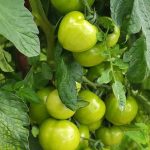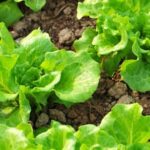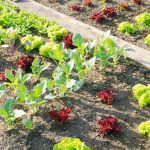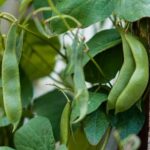Are you looking for a way to nourish your vegetable garden with natural, environmentally-friendly ingredients? Look no further than homemade organic fertilizer for vegetable gardens. In this article, we will delve into the world of organic gardening and explore the benefits of creating your own fertilizer from natural and sustainable sources.
Using organic fertilizer is essential for maintaining the health and vitality of vegetable plants while minimizing the impact on the environment. With homemade organic fertilizer, you can provide essential nutrients to your garden while reducing the reliance on synthetic chemicals. By utilizing natural and readily available ingredients, you can create a sustainable and cost-effective solution for your vegetable garden’s nutritional needs.
In this comprehensive guide, we will discuss the nutritional requirements of vegetable plants and how homemade organic fertilizer can effectively meet these needs. We will also explore common ingredients used in homemade fertilizers and provide DIY recipes for creating different types of organic fertilizers tailored to specific vegetables and garden conditions.
Additionally, we will delve into best practices for application and highlight the benefits of composting and vermicomposting as methods for creating homemade organic fertilizer. Join us as we embark on a journey to discover the wonders of homemade organic fertilizer for thriving vegetable gardens.
Understanding the Nutritional Needs of Vegetable Plants
Vegetable plants, like all living organisms, have specific nutritional needs to support their growth and development. Understanding these requirements is crucial in providing the best care for your vegetable garden. Key nutrients that vegetable plants need include nitrogen, phosphorus, potassium, calcium, magnesium, and sulfur. These nutrients play essential roles in processes such as photosynthesis, root development, flower and fruit production, and overall plant health.
Homemade organic fertilizer for vegetable gardens can effectively meet these nutritional needs by utilizing natural ingredients that are rich in the necessary nutrients. Ingredients such as compost, manure, bone meal, kelp meal, and fish emulsion are excellent sources of the key nutrients required by vegetable plants. By creating a balanced homemade organic fertilizer with these ingredients, gardeners can ensure that their plants receive all the essential nutrients needed for optimal growth without relying on synthetic or harmful chemicals.
Furthermore, homemade organic fertilizer promotes healthier soil and improves its structure through the addition of organic matter. This not only enhances nutrient absorption by the plants but also supports beneficial microbial activity in the soil. Ultimately, understanding the nutritional needs of vegetable plants underscores the importance of using homemade organic fertilizer to provide them with the vital nutrients they require while also promoting a sustainable and environmentally-friendly approach to gardening.
| Nutrient | Role |
|---|---|
| Nitrogen | Essential for leafy growth and overall plant health |
| Phosphorus | Promotes root development and flower/fruit production |
| Potassium | Aids in photosynthesis and overall plant vigor |
| Calcium & Magnesium | Important for cell structure and enzyme function |
Common Ingredients for Homemade Organic Fertilizer
When it comes to creating a homemade organic fertilizer for vegetable gardens, there are several natural and organic ingredients that can be used to promote the health and growth of your plants. These ingredients not only provide essential nutrients to the soil but also contribute to the overall well-being of the environment.
One common ingredient is compost, which is rich in organic matter and nutrients such as nitrogen, phosphorus, and potassium. Compost not only improves soil structure but also enhances nutrient retention, promoting healthy root development in vegetable plants.
Another key ingredient is manure, which is a valuable source of nitrogen, phosphorus, potassium, and other micronutrients. When properly composted, manure becomes a rich and effective fertilizer for vegetable gardens. Additionally, bone meal is an excellent source of phosphorus and calcium, essential nutrients for root development and overall plant health.
Furthermore, seaweed or kelp can be used as a natural source of potassium and trace minerals. When incorporated into homemade organic fertilizers, seaweed helps improve plant tolerance to environmental stressors while enhancing overall vigor and resilience. Other common ingredients include coffee grounds, which are a great source of nitrogen; fish emulsion for a quick nitrogen boost; and Epsom salts to provide magnesium for healthy plant growth.
By utilizing these natural and organic ingredients in your homemade organic fertilizer for vegetable gardens, you can ensure that your plants receive all the necessary nutrients for optimal growth without the use of harmful synthetic chemicals. These ingredients not only nourish the plants but also contribute to building healthy soil ecosystems that support long-term sustainability in your garden.
DIY Recipes for Homemade Organic Fertilizer
Creating your own homemade organic fertilizer for vegetable gardens is not only a sustainable and cost-effective option, but it also allows you to have full control over the ingredients used. By making your own fertilizer, you can ensure that it is free from harmful chemicals and tailored to meet the specific nutritional needs of your vegetable plants.
There are numerous DIY recipes for homemade organic fertilizer that utilize natural and organic ingredients to provide essential nutrients to your vegetable plants. One popular recipe involves using compost, seaweed, bone meal, and fish emulsion. Compost serves as a nutrient-rich base, while seaweed provides a source of potassium and other trace minerals. Bone meal contributes phosphorus, which is crucial for root development, and fish emulsion adds nitrogen for healthy foliage growth.
Another DIY recipe incorporates Epsom salt, coffee grounds, and eggshells. Epsom salt supplies magnesium, which is essential for chlorophyll production and overall plant health. Coffee grounds act as a natural source of nitrogen and can help improve soil structure. Eggshells provide calcium to prevent blossom end rot in tomatoes and peppers.
For a more customizable approach, you can create a DIY recipe based on the specific needs of your vegetable garden. Researching the nutritional requirements of your plants and experimenting with different natural ingredients can lead to the development of a personalized homemade organic fertilizer that effectively nourishes your vegetable plants.
By utilizing these DIY recipes for homemade organic fertilizer, you can ensure that your vegetable garden receives the necessary nutrients for optimal growth without relying on synthetic fertilizers that may harm the environment or compromise the quality of your produce.
Application and Best Practices
When it comes to using homemade organic fertilizer for vegetable gardens, proper application and best practices are crucial for maximizing its effectiveness. By following the right techniques, gardeners can ensure that their plants receive the necessary nutrients for healthy growth while also promoting soil health and sustainability.
Proper Application Techniques
One of the key principles in applying homemade organic fertilizer is to do so in a way that ensures even distribution and absorption by the plants. This can be achieved by carefully sprinkling the fertilizer around the base of each plant and gently working it into the soil. Additionally, it’s important to avoid placing the fertilizer too close to the stems or leaves of the plants, as this can lead to burning or over-fertilization.
Timing and Frequency
Knowing when and how often to apply homemade organic fertilizer is essential for maintaining optimal plant health. Generally, it’s recommended to fertilize vegetable plants at specific intervals throughout their growing season, such as during planting, early growth, and fruiting stages. It’s also important to consider the specific needs of different types of vegetables and adjust the frequency of fertilization accordingly.
Maximizing Effectiveness
In order to maximize the effectiveness of homemade organic fertilizer for vegetable gardens, there are several best practices that gardeners can implement. This includes incorporating compost or vermicompost into the soil before applying the fertilizer, as this will create a more favorable environment for nutrient uptake by the plants. Additionally, regularly testing soil pH levels and adjusting them as needed can help ensure that vegetables are able to fully benefit from the nutrients provided by homemade organic fertilizer.
These application techniques, timing considerations, and best practices play a vital role in ensuring that homemade organic fertilizer for vegetable gardens is used effectively and yields positive results for both plants and soil health. By following these guidelines, gardeners can maximize their harvests while also contributing to a more sustainable and environmentally friendly approach to gardening.
Composting and Vermicomposting
Composting typically involves gathering a mixture of organic waste such as fruit and vegetable scraps, yard trimmings, and coffee grounds in a designated compost bin or pile. These materials are then allowed to decompose over time, resulting in nutrient-dense compost that can be added to the soil to improve its fertility. Vermicomposting, on the other hand, utilizes worms to break down organic matter and create vermicompost, which is rich in beneficial microorganisms and nutrients.
When practicing composting or vermicomposting for homemade organic fertilizer, it’s important to consider the ratio of brown (carbon-rich) and green (nitrogen-rich) materials to ensure proper decomposition. Common ingredients for these processes include:
- Brown materials: dry leaves, straw, paper
- Green materials: fruit and vegetable scraps, grass clippings, coffee grounds
By utilizing these natural and readily available resources, gardeners can create their own nutrient-packed homemade organic fertilizer without relying on synthetic products that may be harmful to the environment.
In addition to providing essential nutrients for vegetable plants, homemade organic fertilizer from composting and vermicomposting also helps improve soil structure, retain moisture, and support beneficial microbial activity in the garden. This approach not only benefits the plants but also contributes to sustainable gardening practices by reducing waste and promoting environmental stewardship. Overall, integrating composting and vermicomposting into vegetable gardening routines can lead to healthier plants and bountiful harvests while minimizing reliance on commercial fertilizers.
Benefits of Homemade Organic Fertilizer
Homemade organic fertilizer for vegetable gardens offers numerous benefits that can positively impact both the plants and the environment. By choosing to use natural and organic ingredients, gardeners can provide their vegetable plants with the essential nutrients they need in a sustainable and environmentally friendly way.
Enhanced Nutrient Absorption and Soil Health
Enhanced Nutrient Absorption
One of the main advantages of using homemade organic fertilizer is its ability to enhance the absorption of essential nutrients by vegetable plants. The natural components of homemade fertilizer are readily available to the plants, allowing for better uptake and utilization of nutrients for optimal growth and development.
Improved Soil Health
In addition to benefiting the plants, homemade organic fertilizer also promotes overall soil health. The use of natural ingredients contributes to a healthy soil ecosystem, fostering beneficial microbial activity and improving soil structure. This leads to better water retention, drainage, and aeration, creating an environment that supports healthy plant growth.
Reduced Environmental Impact
Homemade organic fertilizer is an environmentally sustainable alternative to synthetic fertilizers. By using natural ingredients and avoiding harmful chemicals, gardeners can minimize negative impacts on surrounding ecosystems, groundwater, and wildlife. Additionally, the production process for homemade organic fertilizer generates fewer greenhouse gas emissions compared to commercial synthetic fertilizers.
Promotion of Biodiversity
Organic gardening practices such as using homemade organic fertilizer contribute to promoting biodiversity in vegetable gardens. By avoiding chemical-based products, gardeners create an environment that attracts diverse beneficial insects, birds, and other wildlife that contribute to a balanced ecosystem within the garden.
Cost Savings
Another significant benefit of homemade organic fertilizer is its cost-effectiveness. Many of the ingredients used for making organic fertilizer can be sourced locally or even found within the household kitchen or garden waste. This reduces the need for expensive commercial fertilizers while still providing highly effective nutrition for vegetable plants.
By harnessing these benefits of homemade organic fertilizer, gardeners can nurture healthy vegetable gardens while also contributing positively to environmental conservation efforts.
Case Studies and Success Stories
In conclusion, homemade organic fertilizer for vegetable gardens offers a sustainable and effective solution for promoting plant growth and soil health. By understanding the nutritional needs of vegetable plants and utilizing natural ingredients, gardeners can create their own organic fertilizer tailored to their specific garden conditions. The application of homemade organic fertilizer not only benefits the plants but also contributes to the overall environmental health by reducing reliance on synthetic chemicals.
The benefits of using homemade organic fertilizer are evident in the thriving vegetable gardens that have implemented this approach. These success stories serve as inspiration for other gardeners looking to enhance their own gardening practices. By prioritizing the use of natural and environmentally-friendly fertilizers, these gardens have experienced significant growth and yield improvements, showcasing the potential impact of homemade organic fertilizer on overall plant health and productivity.
Through composting and vermicomposting, gardeners can further maximize the sustainability and effectiveness of their homemade organic fertilizers. These methods contribute to the recycling of organic waste materials while producing nutrient-rich compost and vermicompost that can be used to enrich the soil in vegetable gardens.
This holistic approach to fertilization not only supports plant growth but also maintains long-term soil fertility and health, creating a sustainable cycle within the garden ecosystem. Overall, the use of homemade organic fertilizer for vegetable gardens presents a compelling case for a natural and eco-friendly approach to nurturing healthy plants and abundant harvests.
Frequently Asked Questions
What Is the Best Homemade Fertilizer for Vegetable Gardens?
The best homemade fertilizer for vegetable gardens is compost. Compost is made from organic kitchen scraps, yard waste, and other biodegradable materials that break down into a nutrient-rich soil amendment. It provides essential nutrients to plants and improves soil structure.
How Do I Fertilize My Vegetable Garden Organically?
Fertilizing your vegetable garden organically involves using natural materials like compost, manure, bone meal, or seaweed-based fertilizers. These organic fertilizers are rich in essential nutrients and promote healthy plant growth without the use of synthetic chemicals.
What Is the Best Organic Fertilizer for Vegetables?
The best organic fertilizer for vegetables depends on the specific needs of your garden and soil. Compost is a versatile option that provides a balance of nutrients, improves soil health, and promotes beneficial microbial activity. Other options like fish emulsion, seaweed extract, or blood meal can also be effective depending on the needs of your plants.

If you’re looking to get into vegetable gardening, or are just looking for some tips on how to make your current garden better, then you’ve come to the right place! My name is Ethel and I have been gardening for years. In this blog, I’m going to share with you some of my best tips on how to create a successful vegetable garden.





